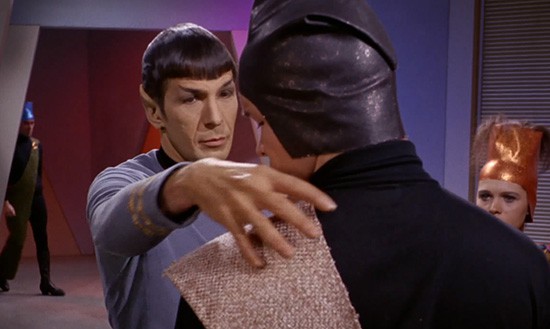
BitDepth#978 for March 03, 2015
There has never been any shortage of televised space operas, but right from the start, there was something very special and compelling about Gene Roddenberry’s Star Trek.
The new show seemed to be just a slightly upscale Flash Gordon adventure set in space with a hearty helping of the cowboy frolics that were popular at the time, but Roddenberry quietly dared to be different.
His Star Trek did something quite remarkable. It put intelligence in charge of emotion and equality and mutual respect front and centre on its agenda.
At the heart of this rather rebellious concept sat the (mostly) implacable Mr Spock, played by the serenely capable actor Leonard Nimoy.
Mr Nimoy died last week, and the 83-year-old actor went out buoyed by technology, his last tweet a poignant reminder of all the technology that he inadvertently inspired.
There is every likelihood that the development of technology might have proceeded in exactly the same way had there been no Star Trek, but would the legions of today’s technologists have rallied quite so decisively behind nerdiness had they grown to manhood without the amazing cool of Spock as a benchmark?
Sulu might have wielded a mean rapier and Kirk was fashionably handy with his fists, but Nimoy pulled off the gentle, and it must be admitted, somewhat girly for its time, ‘nerve pinch’ with elan.
While everyone else was working up a vigorous sweat on the set, there stood Spock, usually just out of sight, disabling big, hardback men with a firm touch on the shoulder.
This was weaponized intellect and the triumph of knowledge over exuberance and muscle.
How could this lesson possibly be lost on a generation of thinkers?
Spock might have been a co-star on the show, but for anyone keen to really understand and appreciate what Gene Roddenberry had worked so hard to create, Nimoy was at the centre of the show’s ideals.
It’s no surprise that the background of this fascinating (there’s that word) character would provide such grist for the show’s writers.
Born a half-breed human and raised on Vulcan, this was a character given a double helping of the emotions the culture of that planet worked hard to suppress and control from birth.
An alien to all, he was the most recognisably human character in the cast. Working with a role that had no stereotypical anchor points, he created something sui generis, a person interacting with cutouts.
Star Trek became greater for it, as his colleagues worked to shape more depth and dimension into their roles.
You can actually watch it happen to DeForest Kelley’s Dr McCoy if you watch the episodes in shooting order instead of the broadcast schedule.
Nimoy’s work in crafting a character riddled with internal conflict yet showing none of it, struck a resonant chord with shy, thoughtful, deeply introspective fans.
Here was a man who met arguments with cool logic, fought with his fingertips and engaged in laconic repartee that would make Ingrid Bergman swoon.
To this day, I meet unusual situations or particularly silly statements with an arched eyebrow that can be traced right back to the first airings of Star Trek in black and white on TTT in T&T.
And girls? Was there ever anything like Pon Farr in our faltering efforts to impress lovely ladies?
I learned to control a fierce temper by practicing Nimoy’s flinty reserve and unflinching eye. If Spock could get through an hour’s worth of McCoy’s needling and Kirk’s maddening bravura, I could weather the unrelenting idiocy of the wilfully ignorant.
In the outpourings of love and gratitude that have accompanied his passing is the finest salute of all that can be paid to an actor.
His was work that informed our understanding of humanity and inspired all who admired it to try harder in our own performances on the stage of life.


